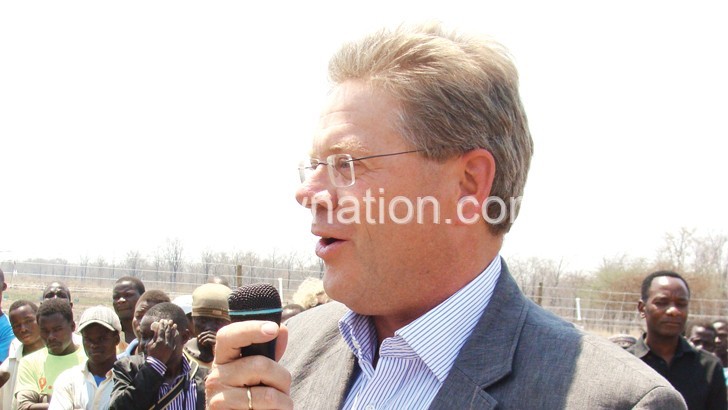Donors join forces on k577bn audit
The European Union (EU) and United Kingdom (UK) have thrown their weight behind the German-instituted forensic audit which is meant to shed light on the K577 billion feared to have disappeared from government coffers between 2009 and 2014 without a trace in Capital Hill’s cashbook.
Both UK and EU confirmed the development this week, but were tight-lipped on the nitty gritty of their agreement with Germany, which was until now the only donor funding the exercise.
“We are part of the team supporting the audit, but contact the Germans for a reply,” said British High Commission’s communications officer Benson Linje in response to a Weekend Nation questionnaire.
Head of EU’s politics, press and information office James Dolan said the audit exercise is jointly supported by “a group of donors” as part of the development partners’ collective support to Malawi Government in its public finance expenditure management efforts.
“For more detailed responses to some of your other questions, you may wish to contact the National Audit Office,” he said.
On his part, Germany Ambassador to Malawi, Peter Woeste, said the audit exercise is now receiving support from “several donors.”
“The key message is that the audit is jointly supported by a large group of donors and that the investigations will continue as planned.”
“I would not focus too much on [time frame], but on the fact that together with the Government of Malawi and in particular the NAO [National Audit Office] the work can proceed. We welcome the Malawi Government’s commitment to investigate the use of Malawi’s public finances during the current and the two previous administrations,” he said, without naming the other donors.
He asked Weekend Nation to get more details from NAO: “Other questions should be addressed to the NAO as we, as donors, are just giving support to the government”.
But NAO spokesperson Lawrence Chinkhunda yesterday expressed ignorance of the development, saying: “We have no official communication on the consortium of donors financing the investigation.”
However, according to sources within diplomatic missions, the donors have teamed up to expedite the audit exercise which government estimated would take 10 months from June this year.
“It’s now a collective responsibility for the donors and the major purpose is to help safeguard Malawi’s public resources,” said the source.
Germany funded what was initially assumed to be the K92 billion Forensic Audit, until auditors’ examination of public finance expenditures between January 2009 and December 2014 revealed that K577 billion was not accounted for.
An analysis of government’s cashbook conducted by PricewaterhouseCoopers (PwC) and released in June this year indicated that the total value of payments on bank statements during the five-year period under review amounted to K1.85 trillion while the total value of cashbook entries during the same period stood at K1.27 trillion, resulting in a shortfall of K577.2 billion.
PwC, which was hired by the German government to work with the Auditor General’s office on the exercise, detailed all payments on the Integrated Management Information System (Ifmis) and matched bank statements against cashbook entries.
The analysis zeroed in on government ministries and departments, where it was revealed that ministries of Agriculture, Irrigation and Water Development; Local Government and Rural Development, and Lands had the highest amounts of payments missing from the cashbook.
Other major issues highlighted in the report included deliberate efforts by the ministries and departments to delete important data such as supplier, payments, and invoices and voucher information, from Ifmis.
In a press statement released in June, Auditor General Stephen Kamphasa said the forensic audit, which is anxiously being waited for by many Malawians, could be finalised in 10 months.
Kamphasa said without the forensic audit, it would be difficult to establish the exact amount of money that was stolen or misappropriated.
The German-funded analysis report followed another forensic audit report by British Firm Baker Tilly, which established that K24 billion was looted from public coffers between April and September 2013 under the administration of former president Joyce Banda.
The plunder shocked the country’s major donors who have since frozen their budgetary support to Malawi.
Several government officers are currently being prosecuted in various charges related to the looting while others have been convicted and are serving jail terms after being found guilty of the charges.
Among those convicted is former principal secretary in the Ministry of Tourism, Treza Senzani, the ministry’s assistant director Leornard Kalonga and businessperson and former People’s Party official Oswald Lutepo.
As of April this year, government had only recovered K220 million of the K24 billion in six cases. n





